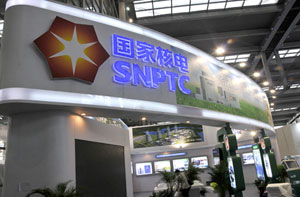Govt sells low-rent housing equities to raise cash
Updated: 2011-09-23 17:36
(Xinhua)
|
|||||||||||
JINAN - Local governments in China are using the sales of equity in low-rent public housing units to cope with capital pressures, as the country plans to provide 36 million new affordable housing units for low-income people to buy and rent within five years.
The government of Pingyuan county, located in east China's Shandong province, has sold partial equities of 140 low-rent housing units, nearly 40 percent of the county's low-rent public housing facilities, said Zhang Yongxuan, vice director of housing management center in Pingyuan county.
Selling some equities in low-rent public housing units could alleviate capital pressures facing local governments amid the nationwide expansion of public housing projects, said Zhang, adding that it also benefits the public as the equities were sold to low-income tenants.
Xiao Enjun, a resident of Pingyuan, rented a public housing unit and received 80 percent equity in the house after paying 130,000 yuan ($20,300) to the government. Xiao said he now feels secure as a homeowner.
But some residents in Pingyuan county disagree with the government's policies, because selling these low-rent housing units makes them unavailable to future low-income renters.
Pingyuan county is one of many local governments to privatize public housing. The local government of northwest China's Gansu province required public housing equity to be partially sold to tenants at the end of last year. Over 1,000 low-rent public housing units were sold to tenants in 2009 in the city of Xinxiang in Henan province.
Experts believe the sales of equity will ultimately harm the welfare of low-income people.
The houses should be for lease, not sale, otherwise the volume of public housing units will be reduced, said Li Tiegang, director of the property research center of Shandong University.
Privatizing low-rent public housing is not the only measure local governments have taken to ease capital pressures. City governments in Shandong province have asked property developers to contribute 10 to 45 percent of their houses to public housing programs, according to local authorities.
Some local governments have even shifted pressures to enterprises. The city government of Rizhao in Shandong province started construction on 200 low-rent public housing units this year. The government asked 10 companies to build an additional 2,000 units as it was ordered to start building 3,000 affordable public housing units in 2011.
The government can not shrug off its responsibilities like this, said Lin Donghua, a researcher with the Academy of Social Sciences in Shandong Province.
The State Council, or China's Cabinet, asked local governments to invest more in the construction of low-rent public housing units on Monday.
Local governments, however, are burdened with over 10 trillion yuan in debt, with fiscal revenues reaching just 7.3 trillion yuan in 2010, according to the National Audit Office.













